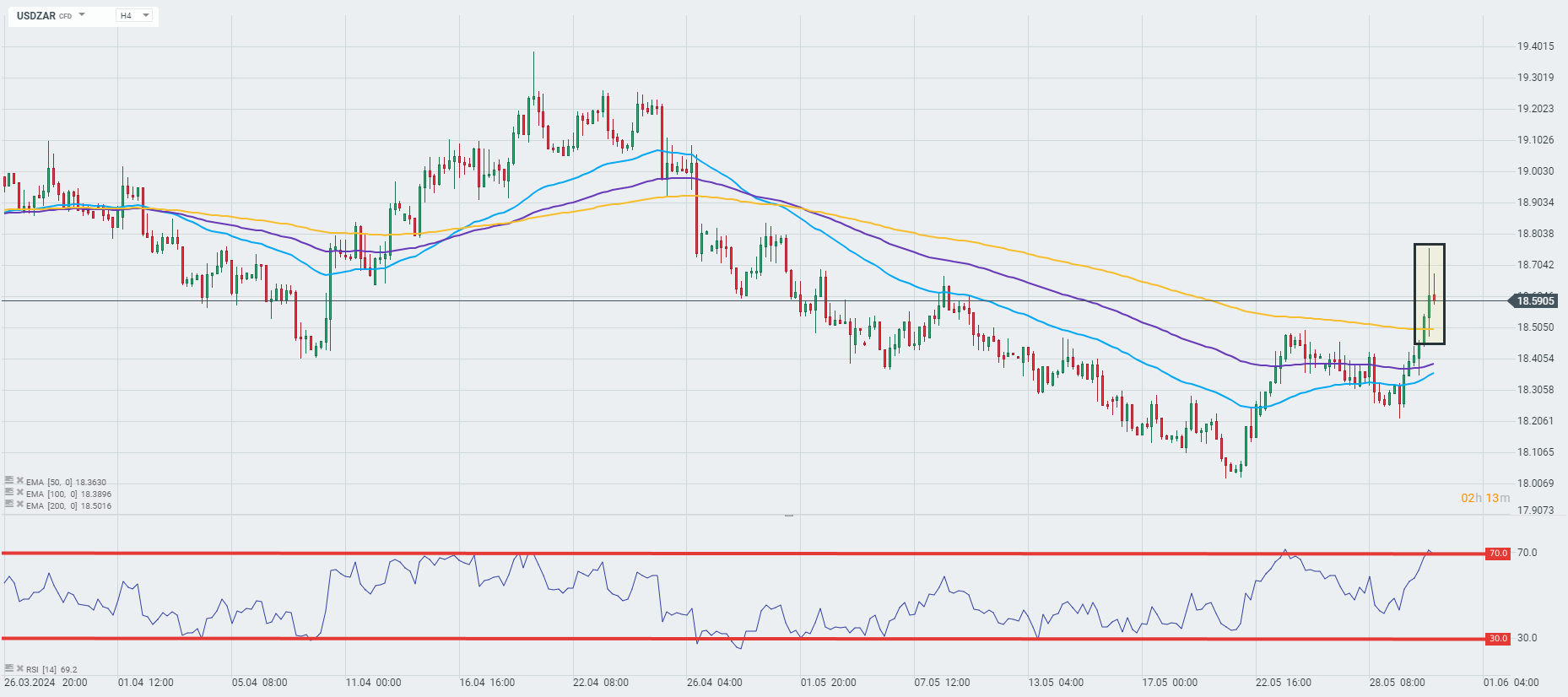The South African rand trades lower against the U.S. dollar (USDZAR) today, as early election projections showed a sharp drop in electoral support for the ruling African National Congress, raising the prospect of chaotic coalition talks that have investors worried. Early models indicate at this point that the ANC will lose its majority and get at most 45% of the total vote.
The whole situation is significant because such an election result will end the dominance of the National Congress, which has lasted for nearly 3 decades. As Bloomberg reports, South African markets gained dynamically in early May on expectations that the next government would be led by the ANC with a market-friendly coalition partner, signaling continuity with existing policies. There is now a growing chance that the dominant party will be forced to enlist the support of its rivals to fully govern one of Africa's most important economies.

On the H4 interval, the RSI indicator is breaking out of a textbook overbought zone. USDZAR pair.
Source: xStation

ข่าวเด่นวันนี้

BREAKING: ยอดขายปลีกสหรัฐฯ ต่ำกว่าคาดการณ์

3 ตลาดสำคัญที่ต้องจับตาในสัปดาห์นี้

พรรคของ Takaichi ชนะเลือกตั้งในญี่ปุ่น – ความกังวลหนี้กลับมาอีกครั้ง? 💰✂️


